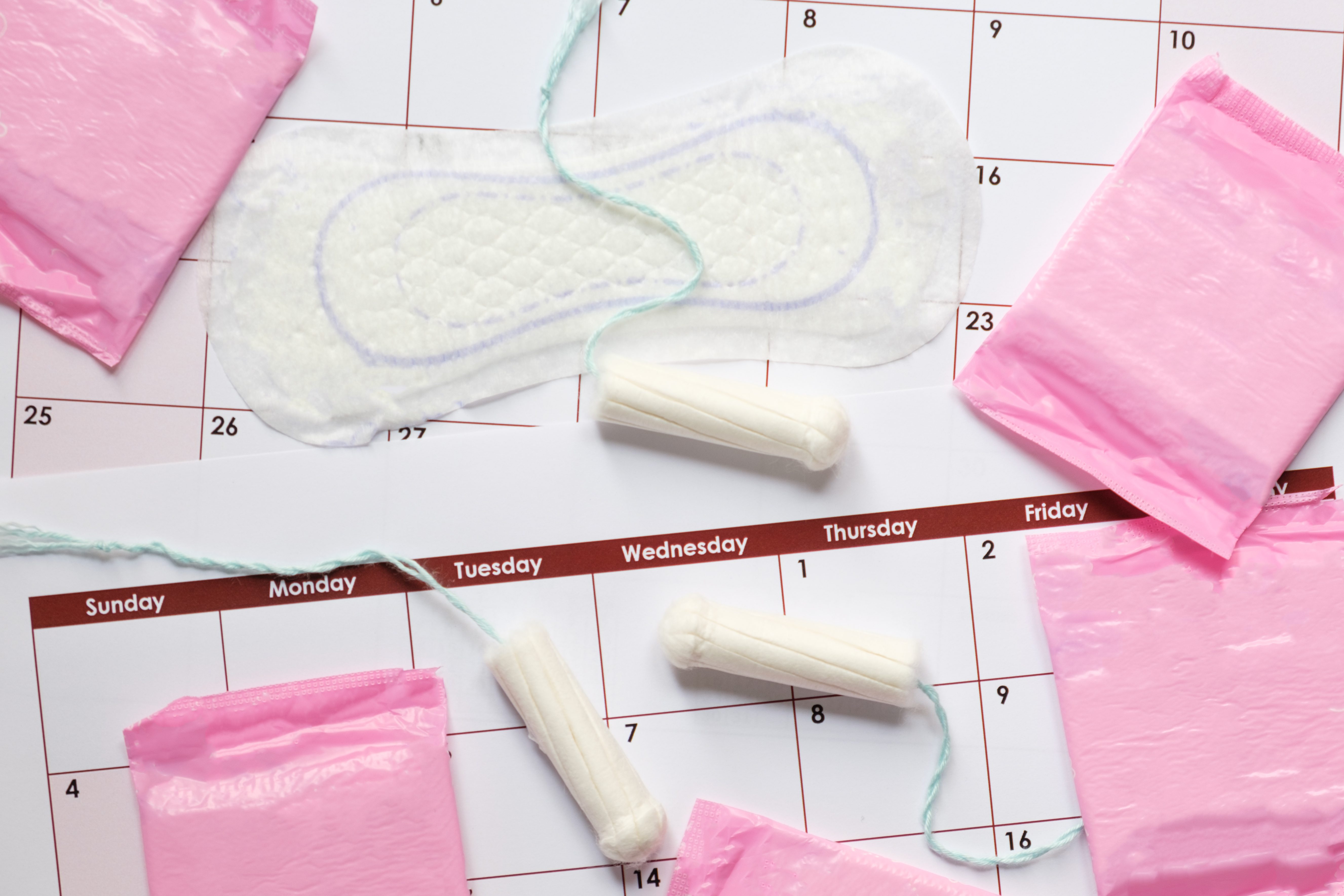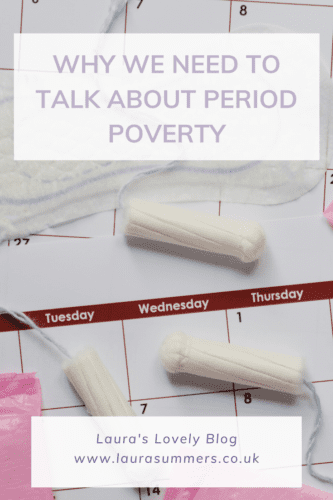
When I started to think about writing a post about period poverty, a memory from my childhood came to mind. My sister had a friend, for the purpose of this article we will call her Gemma (which is of course not her real name).
I remember my sister telling me about Gemma, but being young and naive I never really considered the true implications of her story, at the time I just thought it a bit gross.
One day my sister was chatting to her friend Gemma, it was a really hot day and my sister asked Gemma why she was wearing thick black tights and maybe she should take them off. Gemma then confessed to my sister that she was on her period. Gemma you see was only given one sanitary towel to last her the whole school day. As most of us know, is not enough. And so she wore the black tights to cover up any leaks. She shared with my sister how sometimes it would trickle down the inside of her legs and the tights helped to hide this.
At the time, I was pretty horrified when my sister shared the story. But now with more education and knowledge I feel so terribly sorry that Gemma had to experience this. How must those days have felt for her? The worry about when her sanitary towel would overflow, would it leak onto her clothes? Would anyone notice? Worrying about how she might smell, how uncomfortable she must have felt, how embarrassed she must have been.
Gemma, is the reality of period poverty. One sanitary towel to last her the day. Multiple weeks of her schooling marred by the experience of discomfort and worry. I know I would have rather have missed school than lived through this several days every month.
When I hear staggering figures like 20% of girls missing school because of period poverty, of mothers missing work because they can only afford to buy sanitary products for their children and not themselves, I think of Gemma.
Sadly this is a reality in modern Britain, young girls skipping their education because they are on their period. Which of course impacts their whole lives, because of a biological process, because of their gender. Studies have proven that girls who suffer period poverty go on to do less well at school, which then impacts the jobs they can attain and their whole financial future.
This absolutely needs to change. No girl or women should ever have to miss out of her education or work because of not being able to afford sanitary products. Or feel ashamed of her monthly cycle. The fact that women bleed every month is natural and normal and for too long it has been thought of as disgusting and unclean. Girls at school, people in hospitals, people without homes, people in financial difficulty should not have to worry about how they are going to afford clean sanitary products each month.
This is something that has both physical and mental health implications. It is something we should all be doing more for. It is yet another thing that contributes to gender inequality.
To Gemma, I’m sorry. I didn’t realise that this was not a choice for you. That the days you must have endured at school must have been horrendous.
From September 2020 the government has pledged free sanitary products in primary and secondary schools which I think is a great step to make education more accessible for all.
But, at present, the UK government still charges 5% VAT on all sanitary products. It’s not good enough. They are not a luxury item, they are essential. A women does not have a choice whether she experiences a period or not, she cannot wish them away on a given month should she choose. Each month it is a biological fact that women need clean sanitary products.
The BBC Website has a sanitary products calculator which works out how much money you have spent on sanitary products to date, and how much of that is VAT. So far, at the grand old age of 39, I have apparently spent nearly £1000 on sanitary products of which £80 of that is VAT. This isn’t a tax on a luxury item, it’s a tax on being a woman. Tax on sanitary products must be abolished.
I’d love to see reusable products being part of the solution. If we were to give girls of a certain age a pack of reusable products, this would solve the problem for years, rather than just one month. Offer women that are struggling financially a reusable pack of products in the same way people can access free contraception. This would be a great solution both environmentally and financially. What we really need to do is move away from the often squeamish perception of reusable products, to remember that this is how our ancestors did it for years and years before us. There is nothing wrong with washing and reusing items and the good news is the technology has got better too.
If you want to read more about the environmental impact of sanitary products there is a great post on Incredibusy. If you are considering using a menstrual cup have a read on my recent blog post about them.
For gender equality to truly be realised, this is something we should be striving to change right now. Periods aren’t smelly or gross, they are natural and normal. We need to take away the taboo and look for more affordable and ecological answers. But more than that we must find away to stop it impacting women’s education, because 20% of girls missing school because of period poverty is not ok.

